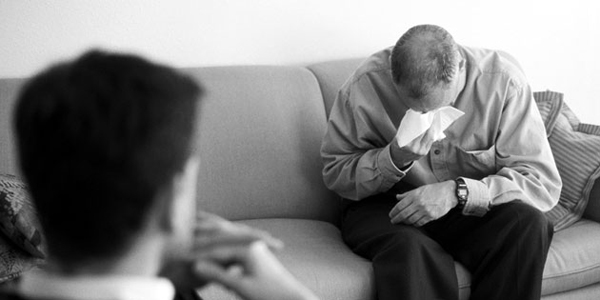
Psychotherapy for depression treatment
Talk therapy is an extremely effective treatment for depression. What you learn in therapy gives you skills and insight to help prevent depression from coming back.
There are many types of therapy available. Three of the more common methods used in depression treatment include cognitive behavioral therapy, interpersonal therapy, and psychodynamic therapy. Often, a blended approach is used.
Some types of therapy teach you practical techniques on how to reframe negative thinking and employ behavioral skills in combating depression. Therapy can also help you work through the root of your depression, helping you understand why you feel a certain way, what your triggers are for depression, and what you can do to stay healthy.
Therapy and “the big picture” in depression treatment
One of the hallmarks of depression is feeling overwhelmed and having trouble focusing. Therapy helps you step back and see what might be contributing to your depression and how you can make changes.
Here are some of the “big picture” themes that therapy can help with:
Understanding the patterns of your relationships, building better relationships, and improving current relationships will help reduce isolation and build social support, important in preventing depression. Setting healthy boundaries. If you are stressed and overwhelmed, and feel like you just can’t say no, you are more at risk for depression. Setting healthy boundaries in relationships and at work can help relieve stress, and therapy can help you identify and validate the boundaries that are right for you. Talking with a trusted therapist can provide good feedback on more positive ways to handle life’s challenges and problems.
Individual or group therapy for depression treatment?
You might automatically think of one-on-one sessions with a therapist. However, group therapy can be very useful in depression treatment as well. What are the benefits of each? Both group and individual therapy sessions usually last about an hour. In individual therapy, you are building a strong relationship with one person, and may feel more comfortable sharing some sensitive information with one person than with a group. You also get individualized attention.
Listening to peers going through the same struggles can validate your experiences and help build self-esteem. Often group members are at different points in their depression, so you might get tips from both someone in the trenches and someone who has worked through a challenging problem. As well as offering inspiration and ideas, attending group therapy can also help increase your social activities and network.